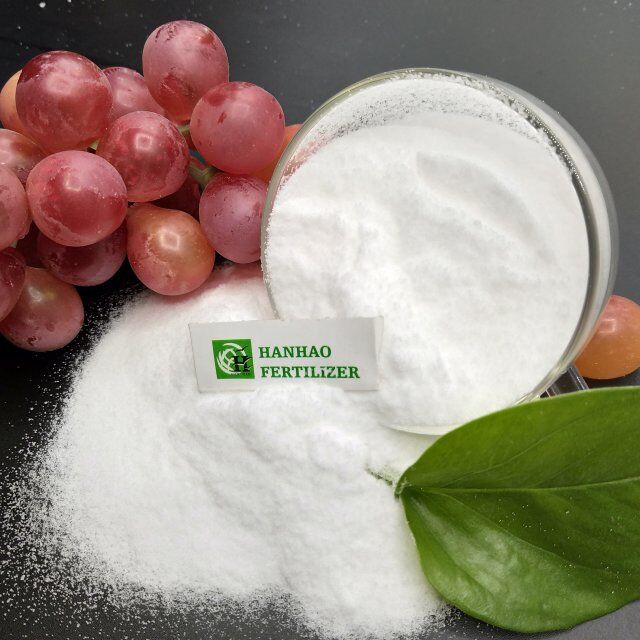
Oct . 10, 2024 17:33 Back to list
npk 30 10 20
Understanding NPK 30-10-20 The Significance of Balanced Fertilization
In the world of agriculture and gardening, the importance of effective fertilization cannot be overstated. One of the most commonly used fertilizers is the NPK fertilizer, which stands for nitrogen (N), phosphorus (P), and potassium (K) – the three essential nutrients for plant growth. Among various formulations, NPK 30-10-20 stands out as a potent option for achieving robust plant health and optimal yields. This article explores the significance of this fertilizer mix, its individual components, and the ideal scenarios for its application.
The Components of NPK 30-10-20
NPK ratios describe the percentage by weight of each nutrient contained in the fertilizer. In the case of NPK 30-10-20, the numbers indicate the following
- Nitrogen (N) – 30% Nitrogen is crucial for the green growth of plants. It is a key component of chlorophyll, the compound responsible for photosynthesis. A healthy nitrogen level promotes vigorous leaf and stem growth, making NPK 30-10-20 particularly suitable for leafy vegetables and plants in the vegetative phase.
- Phosphorus (P) – 10% Phosphorus plays a significant role in energy transfer within plants and is crucial for the development of roots, flowers, and fruits. It supports the formation of DNA, RNA, and ATP (adenosine triphosphate), which is essential for cellular growth and energy storage. While the phosphorus percentage in this formulation is lower compared to nitrogen, it still plays a vital role, especially during blooming and fruiting stages.
- Potassium (K) – 20% Potassium is often referred to as the “quality nutrient.” It helps to improve the overall health of plants, enabling them to withstand stress from diseases, drought, and extreme weather. Potassium also aids in the regulation of various physiological processes, such as water uptake and enzyme activation, thus enhancing the quality of fruits and flowers produced.
Benefits of Using NPK 30-10-20
1. Rapid Growth With a high nitrogen concentration, NPK 30-10-20 is ideal for plants that require a quick boost in growth. This is particularly beneficial for annual vegetables and crops that have a short growing season, as they can respond quickly to the increased nitrogen supply.
2. Improved Yield By facilitating strong root growth and enhancing the overall vigor of plants, this fertilizer formulation can lead to higher yields. The balanced ratios of nutrients ensure that plants receive the essential elements needed for both vegetative growth and reproductive success.
npk 30 10 20

3. Stress Resistance The potassium content in NPK 30-10-20 helps plants better manage stress, making them more resilient to environmental challenges. This is particularly important in regions prone to drought or where diseases are common.
Ideal Application Scenarios
While NPK 30-10-20 can be beneficial for a variety of crops, it is particularly well-suited for
- Vegetable Crops Leafy greens, tomatoes, and peppers thrive with this fertilizer because of their need for nitrogen during their growth phases.
- Flowering Plants When transitioning to the flowering phase, the phosphorus in the mix supports bud formation while the nitrogen encourages lush foliage.
- Fruits As fruit-bearing plants start to develop, the potassium content aids in enhancing fruit size and quality.
However, it is crucial to understand soil health and the existing nutrient levels before applying this fertilizer. Conducting a soil test can help determine whether additional nutrients are necessary, ensuring that plants receive just the right amount for optimal growth.
Conclusion
NPK 30-10-20 fertilizer is a powerful tool in the arsenal of gardeners and farmers alike. Its balanced composition facilitates robust growth, improved yields, and better stress resistance in plants. By understanding the roles of each nutrient, agricultural professionals can make informed decisions on when and how to apply this fertilizer, ensuring that their crops achieve maximum potential. As with all agricultural practices, meticulous planning and observation will lead to fruitful outcomes, allowing for bountiful harvests and flourishing gardens.
-
10 10 10 Fertilizer Organic—Balanced NPK for All Plants
NewsJul.30,2025
-
Premium 10 10 10 Fertilizer Organic for Balanced Plant Growth
NewsJul.29,2025
-
Premium 10 10 10 Fertilizer Organic for Balanced Plant Growth
NewsJul.29,2025
-
Premium 10 10 10 Fertilizer Organic for Balanced Plant Growth
NewsJul.29,2025
-
50 Pound Bags of 13-13-13 Fertilizer for All Plants – Bulk & Organic Options
NewsJul.28,2025
-
High-Efficiency 15-30-15 Granular Fertilizer for Healthy Crops
NewsJul.28,2025
